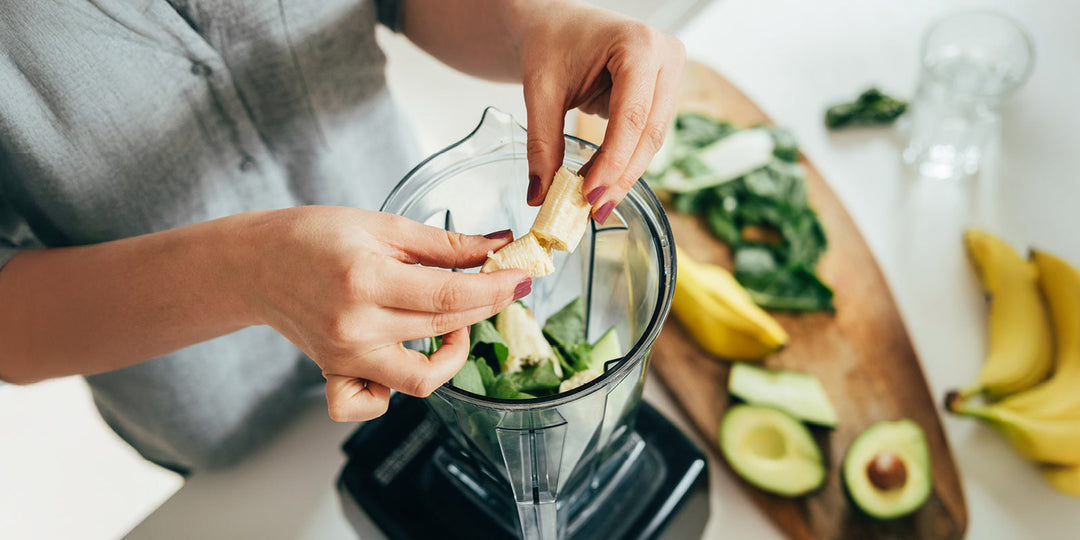Best Whey Protein for Women
Looking for a way to add more quality protein into your daily routine? Whether you're aiming to maintain muscle health, sustain energy, or support your wellness routine after physical activity, finding the best whey protein for women can make all the difference.*
If you're someone with additional protein considerations—perhaps due to preparing for or recuperating from a health event or simply looking to enhance overall wellness—you've come to the right place.
What this article covers:- Why Whey Protein Is Beneficial for Women
- Recommended Whey Protein Powders for Women*
- Types of Whey Protein: Finding the Right Fit
- Key Factors to Consider When Choosing Whey Protein for Women
- How Much Protein Powder Should Women Take?
Why Whey Protein Is Beneficial for Women
Whey protein offers a range of unique benefits for women, making it an excellent addition to many health routines. Its effective absorption helps the body use it quickly, providing a rich source of essential amino acids.
These amino acids are key to maintaining muscle, metabolic balance, and immune function, especially for women with added protein considerations.¹
Whey protein is also valuable for those focused on wellness and physical recuperation. It can help provide nutrients needed for tissue function and cell maintenance.²*
Additionally, whey protein helps maintain muscle mass during periods of reduced activity, which is particularly beneficial for women recuperating from a health event.³*
Higher protein intakes help to promote healthy aging, appetite regulation, weight management and much more.
By incorporating whey protein into a balanced diet, women can give their bodies the nutritional foundation to stay active and meet their wellness goals.
Recommended Whey Protein Powders for Women*
When choosing a whey protein, both quality and formulation are essential factors, especially for women with unique nutritional goals.
Unjury® offers high-quality whey protein powder options that are carefully designed for those with higher protein goals, such as individuals recuperating from physical stress or maintaining wellness routines.
This level of quality ensures that each serving supports effective absorption, meaning the body can utilize the protein efficiently.
For women looking for a versatile, gentle option, Unjury Unflavored High Whey Protein Powder provides an excellent choice.
This unflavored protein powder blends seamlessly into a variety of foods and beverages, making it easy to incorporate into daily meals without altering taste.
Additionally, the gentle formulation makes it suitable for those with dietary sensitivities, helping to minimize the potential for digestive issues.*
Types of Whey Protein: Finding the Right Fit
There are various types of whey protein, each with unique features that may appeal to different preferences or needs.
Whey Protein Isolate vs. Concentrate
Whey protein isolate and concentrate are two of the most popular forms of whey, but they offer different benefits depending on your goals.
Whey protein isolate has undergone additional filtration to remove more of the fats and carbohydrates, resulting in a higher protein content per serving.
This makes it an ideal choice for women aiming for a lean protein option with minimal calories, as well as those watching their carbohydrate or fat intake.
Whey protein concentrate retains more nutrients, including a slightly higher fat and carbohydrate content, which may benefit anyone who needs additional calories for energy.
For those who are new to protein supplements and looking for a balanced option that's easy to incorporate, whey protein isolate can be the best whey protein for beginners.

Hydrolyzed Whey Protein
Hydrolyzed whey protein undergoes specialized processing to break down the protein into smaller peptides, making it one of the fastest-absorbing forms of whey available.
This efficient absorption is particularly advantageous for those who want prompt protein delivery after a workout, helping with muscle repair.*
Additionally, because hydrolyzed whey protein is partially broken down, it is often easier on the digestive system, making it a suitable option for individuals with dietary sensitivities.⁴
This form of whey protein helps reduce the likelihood of stomach issues, ensuring that even those with sensitive stomachs can benefit from a high-quality protein source.
Key Factors to Consider When Choosing Whey Protein for Women
Dietary Needs and Preferences
Women may have unique dietary goals, such as lactose intolerance or specific health considerations.
Whey protein isolates often contain minimal lactose, while some hydrolyzed proteins are specifically formulated for those with dietary sensitivities.
Flavor and Texture
Taste is important for consistency. Unjury offers a variety of flavors that dissolve smoothly and can easily be added to various foods and beverages without altering the taste or texture significantly.
Cost and Quality
Choosing the right protein powder often comes down to balancing cost and quality.
High-quality protein options may come at a higher price, but investing in a product with superior ingredients and formulation ensures that you're getting the best value for your money.
When selecting a protein powder, it's essential to consider both cost and quality to ensure you're getting a product that truly supports your health goals without compromising on ingredients or performance.
With Unjury, users can feel confident that they're receiving a well-crafted, science-backed product that makes their investment worthwhile.

How Much Protein Powder Should Women Take?
The amount of protein powder women should take varies based on individual health goals, age, activity level, and overall dietary needs.
For many, a recommended protein intake of 1.2-2.0g/kg body weight per day is effective for supporting muscle repair, energy levels, and overall wellness.
More may be recommended based on activity level and gastric surgery, such as bariatric surgery (1.5-2.1g/kg ideal body weight).5,6*
However, it's best to consult a healthcare provider to determine precise needs, as factors like exercise intensity, metabolism, and lifestyle can influence the ideal intake.
Taking the right amount ensures you're fueling your body effectively, whether for daily nutrition or enhanced recovery.*
For reliable guidance and high-quality options, Unjury offers tailored protein solutions that fit a variety of health goals.
Conclusion
Choosing the best whey protein for women means finding a product tailored to your unique health goals, dietary needs, and daily routines.
At Unjury, we're dedicated to delivering premium whey protein that fits seamlessly into any wellness plan, whether you're aiming for optimal recovery after a workout or boosting daily nutrition.*
And if you're on the hunt for the best whey protein for men or even the best whey protein to lower cholesterol, Unjury has you covered with trusted, expertly formulated options designed to meet a variety of wellness needs.*
Explore our range to find your perfect match in high-quality, reliable protein.
Did our blog meet your needs? You might also find our other guides helpful:
- List of High Protein Foods
- How to Add More Protein to Diet
- Does Protein Make You Feel Full?
- When to Eat Protein Bars
- How Much Protein Should an Athlete Eat?
- How to Add Protein to Salad
- Why Am I Craving Protein?
- Best Protein Powder for Women’s Weight Loss*
- Best Protein Powder for Menopause Weight Loss*
- Best Chocolate Protein Powder for Weight Loss
- Best Protein Powder for Weight Watchers®
- Whey Isolate vs. Whey Protein
- Complete vs. Incomplete Proteins
- Plant Protein vs. Whey
- Plant Protein vs. Animal Protein
Reference List
- Hoffman JR et al. J Sports Sci Med. 2004;3(3):118-130.
- Witard OC et al. Nutrients. 2016;8(4):181.
- Phillips SM et al. Am J Clin Nutr. 2016;103(3):605-607.
- Hall WL et al. Br J Nutr. 2003;89(2):239-248.
- Vliet SV et al. Nutrients. 2018;10(2):224.
- Mechanick JI et al. Obesity (Silver Spring). 2020;28(4):O1-O58.
*These statements have not been evaluated by the Food & Drug Administration. This product is not intended to diagnose, treat, cure, or prevent any disease.











